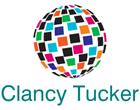BRITAIN'S FIRST
TV ADVERTISEMENT
G'day folks,
The first ever advertisement on British television appeared in 1955. It went out at 8.12pm during a broadcast from London’s Guildhall of a dinner to celebrate the launch that day of the Independent Television network (ITV). Until then the BBC held an uncontested monopoly on broadcasting.
Under the umbrella of the Independent Television Authority, four major
companies – Granada, ABC, ATV and Associated-Rediffusion – set about
challenging the BBC’s supremacy. One of their first targets was the
“Toddlers’ Truce” – an established arrangement whereby all television
broadcasts were banned between 6pm and 7pm so that parents could more
easily put their children to bed!
The truce meant that the BBC – funded then, as today, by a television
licence fee – could save money by reducing its hours of transmission.
The fledgeling independent companies, on the other hand, were hit by the
loss of an hour’s advertising revenue each day and they fought for
abolition of the policy.
The BBC would have none of it, nor would it agree to reduce the truce to
30 minutes. In the end a senior politician settled the dispute. The now
defunct ministerial post of Postmaster General was held at the time by
Charles Hill whose responsibilities included broadcasting.
He said of the “Toddlers’ Truce”: “This restriction seemed to me absurd
and I said so. It was the responsibility of parents, not the state, to
put their children to bed at the right time. I invited the BBC and the
ITA to agree to its abolition.”
When no agreement was reached, Hill took the issue to Parliament and MPs
voted for abolition in October 1956. The two broadcasting sides then
squabbled over a date, leaving Hill to pick Saturday February 16, 1957.
That first TV ad was for Gibbs SR toothpaste – a product described as
“tingling fresh”. To reinforce the message, the ad showed a tube of the
toothpaste enclosed in a block of ice in a shimmering stream. TV
presenter Alex Macintosh announced: "The tingling fresh toothpaste that
does your gums good too. It's tingling fresh. It's fresh as ice. It's
Gibbs SR toothpaste."
It was not only the first TV ad, it was also the first ad to use
trickery. Brian Palmer, then a 26-year-old advertising executive who
wrote and produced it, admitted years later that although a block of ice
was used in the long shots, the “ice” was in fact plastic for closer
work.
“The lights they used in those days were very hot indeed, and ice would
have melted very quickly, so we used a plastic block for the close-ups,”
he said.
The ‘SR’ in the name of the toothpaste referred to sodium ricinoleate,
its active ingredient, which is the sodium salt of ricinoleic acid, the
principal fatty acid derived from castor oil. Though the name was
changed in the 1990s to Mentadent SR, the product continued to be
marketed worldwide by its owners, Unilever, until 2018 when it was
discontinued.
The arrival of TV advertising in 1955 led to protests by church leaders,
teachers, academics and politicians, some of them condemning it as
“crass and vulgar.”
Labour MP John Wilmot went further. He declared in Parliament that "the
nightly poison of advertising which boosts the sale of goods to the
working class is against the national interest".
Clancy's comment: Mm ... and haven't we come a long way since then?
I'm ...





No comments:
Post a Comment